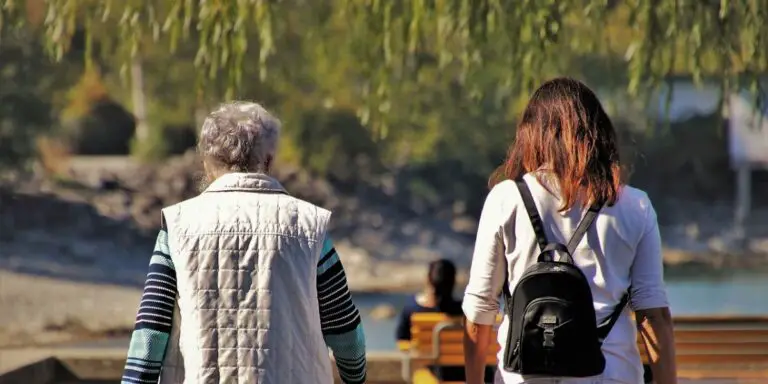
Informal care plays a huge part in everyday life in the United Kingdom. Many people rely on support that does not come from healthcare professionals, but rather from family, friends, and neighbours. This kind of care is often unpaid and delivered from compassion and loyalty, rather than duty or financial reward.
Understanding informal care is central to discussing health and social care policy, family relationships, and the lived experience of people who face illness, disability, or old age. Let’s explore what informal care means, who provides it, what kinds of support it gives, and the impact it has.
What is the Definition of Informal Care?
Informal care refers to the help people give to friends, relatives, or acquaintances who need assistance due to long-term health problems, disability, or old age. Unlike formal care, informal care is unpaid. Informal carers, sometimes called family carers, usually provide help alongside or instead of paid professional care workers from social services, the NHS, or private agencies.
Most commonly, informal carers are family members. They might be spouses, adult children, grandchildren, siblings, or parents. Sometimes, neighbours or close friends take on this responsibility.
If you care for someone you know by helping with washing, cooking, shopping, taking medication, or offering companionship, you are giving informal care.
Who Provides Informal Care?
The 2021 Census in England and Wales recorded over 5 million people aged 5 and over providing unpaid care. The true figure may be higher, as some carers do not see themselves as ‘carers’ and go unnoticed.
Common groups of informal carers include:
- Spouses and partners
- Adult children supporting elderly parents
- Siblings of disabled people
- Grandparents caring for grandchildren with complex needs
- Children and young people (known as young carers) who look after parents or siblings with ill health, addiction, or disability
- Friends and neighbours
Most informal carers are women, but men are carers too. Carers come from every background, culture, and age group. Carers may be working, retired, in education, or unemployed.
Types of Support Provided by Informal Carers
The kind of support an informal carer gives depends on the care recipient’s needs. Here are some common tasks:
- Personal care: Helping with washing, dressing, toileting, or feeding
- Housework: Cleaning, laundry, and shopping
- Cooking meals, ensuring safe eating and drinking
- Prompting or administering medication
- Attending appointments or collecting prescriptions
- Emotional support: Providing comfort, listening, encouragement, or reassurance
- Companionship: Reducing loneliness and keeping someone company
- Managing money or dealing with paperwork
- Supporting hobbies and maintaining social connections
This list shows how wide-ranging informal care can be. For some, care is a full-time responsibility, while others offer occasional help.
The Value of Informal Care
Informal care contributes massively to society. Carers UK estimates that the unpaid care provided by family and friends would cost the state billions of pounds if delivered by professionals. By supporting people to remain at home, informal carers reduce pressure on hospitals and care homes.
For the person receiving care, informal carers often offer comfort, familiarity, and consistency. They are trusted individuals who understand the likes, dislikes, and routines of the person they support.
Impact on Informal Carers
Caring for someone can be rewarding, but it brings challenges too. Informal carers frequently face emotional, financial, and physical pressures.
Emotional Impact
Providing long-term care can lead to:
- Stress and anxiety
- Feelings of guilt, frustration, or sadness
- Social isolation
- Tiredness and lack of sleep
Carers may grieve for the loss of their previous relationship with the person they support.
Physical Health
The physical impact of caring can include:
- Back pain or injuries from helping someone move
- Exhaustion from broken sleep
- Neglecting one’s own health needs
Work, Education, and Finances
Many carers fit their role around employment or studies. Some need to reduce working hours, use annual leave for caring duties, or quit their jobs altogether, leading to financial insecurity. Others face difficulties continuing hobbies or education.
Young carers may miss out on experiences with their peers.
Positive Aspects
Despite the challenges, many informal carers report a sense of pride, satisfaction, and closeness to the person supported. Relationships can grow stronger, and carers can gain new skills and confidence.
The Difference Between Informal and Formal Care
Formal care is delivered by paid staff with relevant qualifications, employed by councils, private companies, or healthcare organisations. Care workers follow policies and standards, undergo training, and work to national regulations.
In contrast, informal carers are unpaid. Their work is shaped by personal relationships and is based on mutual trust, love, or friendship. There is no formal contract, although some carers do receive Carer’s Allowance or other benefits if eligible.
Informal care is flexible and personal. Formal services may provide support for short periods throughout the day, but informal carers are often available around the clock.
Recognising the Role of Informal Carers
The Care Act 2014 in England recognises the rights of adult carers. It entitles carers to a carer’s assessment, which looks at what help they need, their wellbeing, and whether they receive enough practical or emotional support.
Carers may get:
- Information and advice
- Referrals to support groups
- Help with respite care (temporary relief to allow a carer to rest)
- Financial help in some cases
Carers’ rights include the right to have their views considered in decisions about the person they look after.
Organisations such as Carers UK and Carers Trust offer information, campaigning, and practical support for carers across the country.
Barriers Faced by Informal Carers
Being an informal carer is demanding, and carers often face these barriers:
- Recognising themselves as carers – Many see what they do as “just helping out” and do not seek support.
- Lack of information – Carers may not know what services or benefits are available.
- Feeling guilty or fearful about asking for help
- Limited time for themselves or other responsibilities
The Experience of Different Groups
How informal care is provided, and the needs of carers, can vary widely.
Children and Young Carers
Children under 18 who look after a family member are known as young carers. Their caring roles can affect their education, friendships, and mental health.
Caring in Ethnic Minority Communities
Cultural expectations can influence who provides care and how comfortable people feel about seeking help from outside the family.
Sandwich Carers
Some adults care for both children and older relatives, known as the ‘sandwich generation’. Balancing work, childcare, and elder care brings added pressures.
Technology and Informal Care
Digital equipment, apps, and online services are now a part of daily life. For informal carers, technology can lighten the load:
- Medication reminders
- Video calling for consultations or to fight loneliness
- Online grocery shopping
- Digital support groups and forums
Still, not everyone has the digital skills, confidence, or equipment needed to make use of these options.
Support for Carers
It’s important that carers look after their own health and wellbeing. Support can be found in many different places.
Some examples include:
- Carers’ support groups in local communities
- Charities offering telephone or online advice
- Training sessions to learn about safe lifting or managing stress
- Support from employers, like flexible hours or carers’ leave
- Information and guidance from GP practices or councils
Respite care, where someone else looks after the cared-for person temporarily, gives carers a much-needed break.
GPs can register you as a carer, which means they can offer flexible appointments or flu jabs.
Seeking Financial Help
Some carers are eligible for Carer’s Allowance, a taxable benefit for people who provide at least 35 hours of care a week. You cannot receive this if you earn over a certain amount or receive certain other benefits.
Other support may include:
- Carer Premium or Carer Addition in means-tested benefits
- Discounts on household bills through local schemes
- Free or discounted training and support
Local councils and charities can offer more information about eligibility and support.
The Future of Informal Care
The need for informal carers is expected to increase, as people live longer and more conditions are managed at home. Yet carers still often feel unrecognised or undersupported.
Society depends on informal carers, but people providing care must not be left struggling alone. Carers need information, peer support, time off, and respect.
A growing recognition of informal care has led public bodies, employers, and organisations to think more about what carers need.
Final Thoughts
Informal care is unpaid help given to someone with health problems or disabilities. Offered by family, friends, or neighbours, it covers everything from washing and feeding to emotional support and paperwork. The scale of informal care in the UK is huge, supporting individuals and taking pressure off public services.
Providing informal care can be both rewarding and exhausting. Informal carers need better recognition, practical support, and easier access to advice and breaks. By supporting informal carers, we create a kinder and more sustainable care system for everyone.
If you support someone without pay, even if it is just now and then, you are an informal carer – and there is help and advice for you. Reach out to your council, local community groups, or charities for support. Connecting with others can make things easier.
Subscribe to Newsletter
Get the latest news and updates from Care Learning and be first to know about our free courses when they launch.




